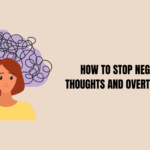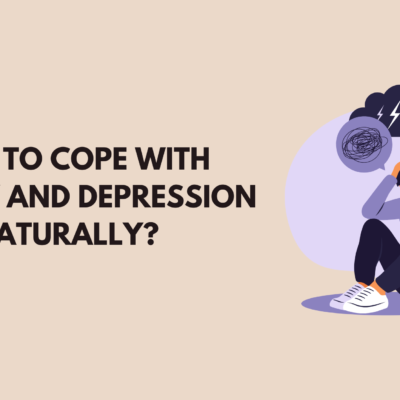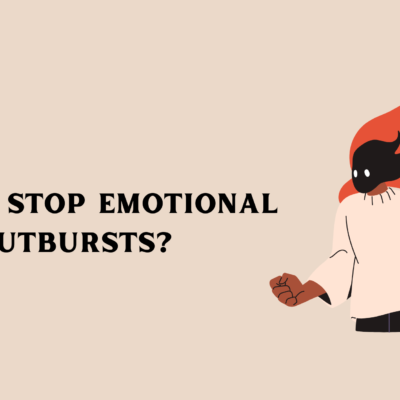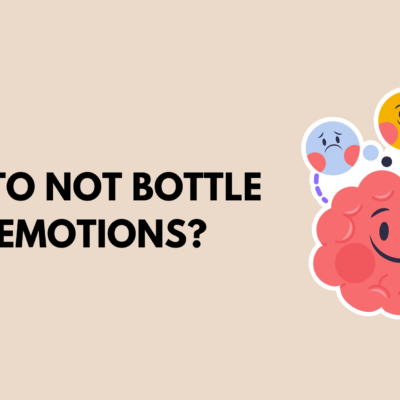How to Stop Being so Anxious all the Time: Anxiety is a natural response to stress and uncertainty, but when it becomes a constant presence in your life, it can feel overwhelming. Worrying excessively about the future, overthinking past mistakes, and feeling a sense of dread for no apparent reason are all signs of chronic anxiety. While occasional anxiety is normal, being anxious all the time can impact your mental and physical well-being.
If you find yourself constantly feeling on edge, it’s important to take steps to regain control over your thoughts and emotions. This article will explore practical and effective ways to reduce anxiety, calm your mind, and restore a sense of peace in your life.
Also Read:
Understanding Why You’re Always Anxious
Before tackling anxiety, it’s essential to understand what causes it. Anxiety can stem from various factors, including:
1. Overactive Mind
Some people naturally have more active minds, making them prone to overthinking and excessive worrying. This can lead to anxiety, even when there’s no immediate threat.
2. Stressful Lifestyle
High-pressure jobs, financial difficulties, relationship problems, or health concerns can contribute to persistent anxiety.
3. Unhealthy Habits
Poor sleep, lack of exercise, excessive caffeine or alcohol intake, and a diet high in processed foods can increase anxiety levels.
4. Past Trauma or Negative Experiences
Unresolved past experiences, childhood trauma, or negative memories can make a person more vulnerable to anxiety.
5. Fear of the Unknown
Many people feel anxious because they fear uncertainty and things they cannot control. This is especially common in people who like to plan everything and struggle when life feels unpredictable.
6. Social and Environmental Factors
Social media, news, and negative environments can fuel anxiety. Constant exposure to bad news or unrealistic expectations on social platforms can make a person feel overwhelmed.
How to Stop Feeling Anxious All the Time
1. Identify and Challenge Your Thoughts
Anxiety often stems from negative or irrational thoughts. The key is to recognize them and challenge their validity.
- Write Down Your Worries – Whenever you feel anxious, jot down what’s worrying you. Seeing your thoughts on paper can help you analyze them logically.
- Ask Yourself Questions – Are these worries realistic? Has this situation happened before? How likely is it to occur?
- Use the “What If?” Technique – Instead of worrying about “what if something bad happens?”, ask yourself, “what if everything works out fine?”
By questioning your thoughts, you can gradually reframe your mindset and reduce anxiety.
2. Practice Deep Breathing and Relaxation Techniques
When you feel anxious, your body goes into “fight or flight” mode, increasing your heart rate and making you feel tense. Breathing exercises can help calm your nervous system.
- 4-7-8 Breathing Technique: Inhale for 4 seconds, hold for 7 seconds, and exhale slowly for 8 seconds. Repeat this a few times to feel more relaxed.
- Diaphragmatic Breathing: Breathe deeply into your belly instead of shallow breathing in your chest. This activates the body’s relaxation response.
Other relaxation techniques include:
- Progressive muscle relaxation (Tensing and releasing different muscle groups)
- Guided imagery (Visualizing a peaceful place)
- Listening to calming music or nature sounds
3. Reduce Your Caffeine and Sugar Intake
Caffeine and sugar can increase anxiety symptoms by causing energy spikes and crashes. If you consume a lot of coffee, energy drinks, or sugary snacks, try:
- Switching to herbal tea (Chamomile or green tea helps with relaxation)
- Eating balanced meals to maintain stable blood sugar levels
- Drinking more water to stay hydrated and reduce stress hormones
4. Move Your Body Regularly
Exercise is a natural stress reliever and one of the best ways to combat anxiety. Physical activity releases endorphins, which improve mood and reduce stress.
- Cardio exercises like running, dancing, or cycling can help burn off nervous energy.
- Yoga and stretching promote relaxation and mindfulness.
- Walking outdoors in nature can have a calming effect on the mind.
Even just 20–30 minutes of movement each day can make a significant difference in reducing anxiety.
5. Get Enough Sleep
Lack of sleep makes anxiety worse. If you often feel anxious, check your sleep habits:
- Maintain a regular sleep schedule (Go to bed and wake up at the same time every day)
- Avoid screens before bedtime (Blue light from phones and laptops disrupts sleep)
- Create a calming bedtime routine (Take a warm bath, read a book, or practice relaxation techniques)
Aim for 7–9 hours of quality sleep each night to help your mind and body recharge.
6. Focus on the Present Moment (Practice Mindfulness)
Anxiety is often caused by worrying about the future. Mindfulness helps you stay focused on the present moment.
- Try Meditation – Just 10 minutes a day can help calm your thoughts.
- Engage in Deep Focus Activities – Cooking, painting, playing an instrument, or even cleaning can be meditative.
- Use the 5-4-3-2-1 Grounding Technique – When you feel anxious, name:
- 5 things you can see
- 4 things you can touch
- 3 things you can hear
- 2 things you can smell
- 1 thing you can taste
This technique brings your attention back to the present moment.
7. Set Realistic Expectations and Avoid Perfectionism
If you always feel anxious about not doing things “perfectly,” remind yourself:
- Nobody is perfect, and mistakes are part of life.
- Progress is more important than perfection.
- You are enough just as you are.
Learn to set realistic expectations for yourself and avoid putting unnecessary pressure on your performance.
8. Limit News and Social Media Consumption
Constant exposure to bad news or unrealistic social media posts can increase anxiety. Try to:
- Take breaks from the news – Check updates only once or twice a day instead of constantly scrolling.
- Unfollow accounts that trigger anxiety – If certain content makes you feel stressed, mute or unfollow those pages.
- Spend more time in real-life activities – Instead of spending hours on social media, focus on hobbies or spending time with loved ones.
9. Talk to Someone
Bottling up your worries can make anxiety worse. Talking to a friend, family member, or therapist can help release tension.
- Join a support group – Connecting with others who experience anxiety can be reassuring.
- Consider therapy – A professional can teach coping strategies and help you navigate anxious thoughts.
10. Accept That You Can’t Control Everything
One of the biggest causes of anxiety is trying to control the uncontrollable. Instead of stressing about things you can’t change, focus on what you can control:
- Your reactions and responses
- Your daily habits and self-care routines
- The way you choose to think about challenges
When you let go of what you can’t control, you free yourself from unnecessary stress.
Conclusion
Stopping anxiety from taking over your life is a journey, not an overnight fix. By practicing mindfulness, changing your habits, and managing stress effectively, you can significantly reduce anxiety and feel more at peace.
Remember, anxiety is not a permanent part of your identity—it’s something you can work on and overcome. Be patient with yourself, take small steps, and celebrate progress along the way.
If your anxiety feels overwhelming, don’t hesitate to seek help from a professional. You deserve to feel calm, confident, and in control of your life.






